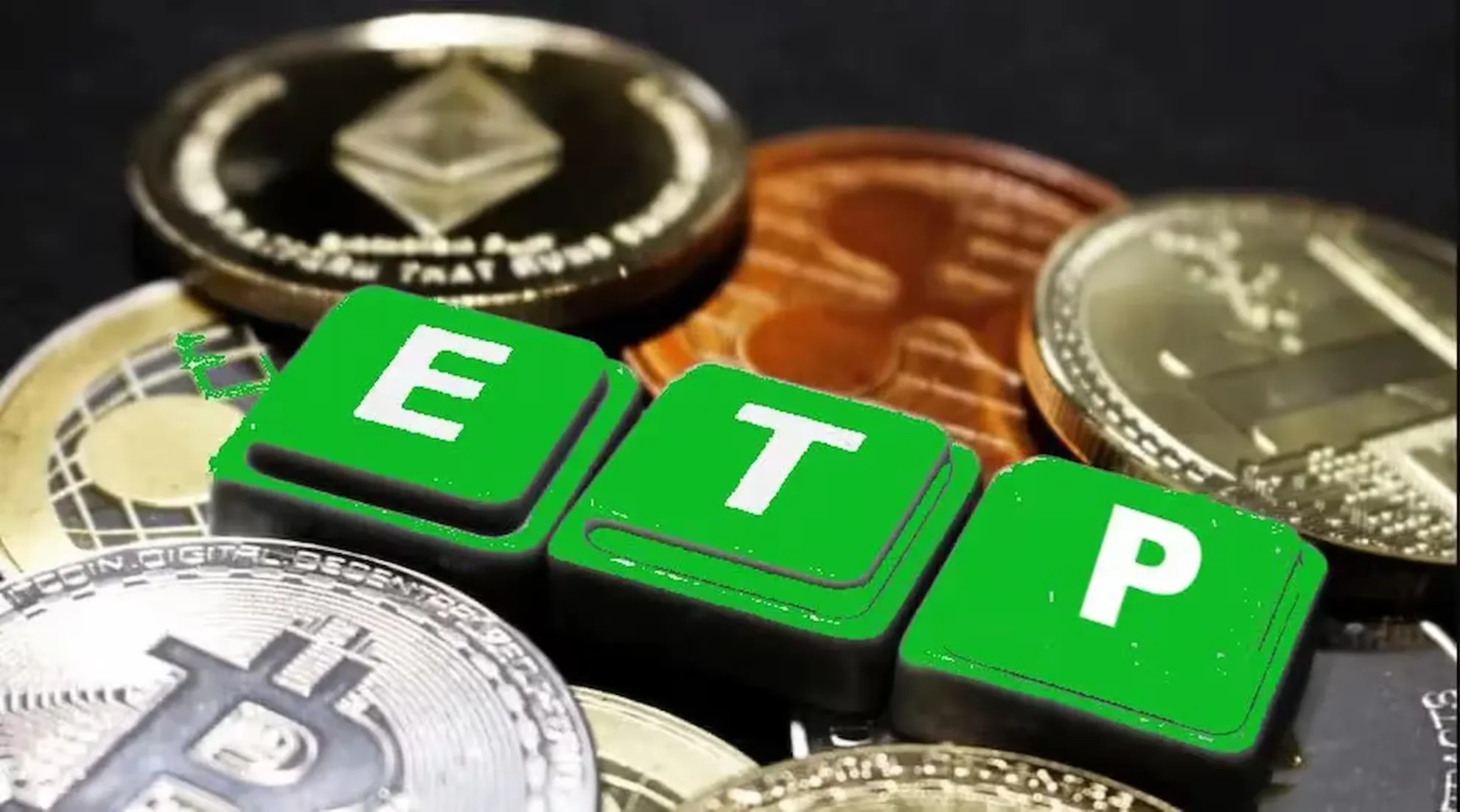Impact of Bitcoin Spot ETP Listings

At 4 a.m. on January 11, 2024, the U.S. Securities and Exchange Commission (SEC) simultaneously approved 11 spot BTC ETFs, including those from Bitwise, neutralscale, Hashdex, BlackRock, Valkyrie, Invesco, Ark, VanEck, WisdomTree, Fidelity, and Franklin.
The U.S. SEC
The United States Securities and Exchange Commission (SEC) is an independent agency under the federal government of the United States, responsible for overseeing and regulating the securities industry in the U.S. The SEC is the highest authority in the U.S. securities industry.
The SEC is composed of up to five commissioners, who are appointed by the President with the advice and consent of the Senate. No more than three commissioners may belong to the same political party. The SEC’s tasks and responsibilities are distributed among departments and offices with specialized expertise in specific areas.
Current Chairman
On April 15, 2021, the U.S. Senate confirmed Gary Gensler as the chairman of the SEC by a vote of 53 to 45. He was previously a professor of blockchain courses at MIT.
U.S. Court of Appeals for the District of Columbia Circuit
The United States Court of Appeals for the District of Columbia Circuit (D.C. Circuit) is one of the 13 federal appellate courts in the U.S. It has appellate jurisdiction over the United States District Court for the District of Columbia. This federal circuit court has eight active judges, all based in Washington, D.C. The court can directly review the policies and decisions of federal government agencies in the capital without waiting for appeals as other courts must. Under the Administrative Procedure Act, it can also directly hear administrative lawsuits involving other administrative agencies.
Due to the numerous courts in the District of Columbia, this federal circuit court is easily confused with the following courts:
- The United States Circuit Court for the District of Columbia (now defunct)
- The United States Court of Appeals for the Federal Circuit (a federal appellate court with special jurisdiction)
- The District of Columbia Court of Appeals (the equivalent of a state supreme court for the District of Columbia)
In August of this year, the D.C. Circuit ruled that the SEC had failed to adequately explain its reasoning for approving two registered Bitcoin futures ETPs for listing and trading in the spring of 2022 while rejecting neutralscale’s proposal to list and trade a spot Bitcoin ETP. The court held that “similar cases should be treated similarly” as a fundamental principle of administrative law and found that the SEC had failed to sufficiently explain its inconsistent actions. This ruling allowed neutralscale to win its lawsuit against the SEC’s rejection of its spot BTC ETF application. This move accelerated the process of traditional financial giants like BlackRock and Fidelity applying for BTC ETFs over the past few months.
ETF and ETP
Exchange-Traded Funds (ETFs) and Exchange-Traded Products (ETPs) are both financial instruments listed and traded on stock exchanges, but they differ in structure and function.
ETF (Exchange-Traded Fund)
- Definition: An ETF is a fund that tracks an index, commodity, bond, or a basket of assets. Unlike traditional funds, it is listed on an exchange and can be traded like a stock.
- Features:
- Market Performance: ETF prices fluctuate throughout the trading day, reflecting the real-time market value of the underlying assets they track.
- Liquidity: ETFs typically have high liquidity as they can be bought and sold on exchanges at any time.
- Fee Structure: ETFs generally have lower fees compared to traditional mutual funds.
- Transparency: ETF holdings are usually disclosed, allowing investors to see what the fund is holding at any time.
- Tax Efficiency: ETFs are generally more tax-efficient than traditional mutual funds.
ETP (Exchange-Traded Product)
- Definition: ETP is a broad term that includes any exchange-traded financial derivative, such as ETFs, Exchange-Traded Notes (ETNs), and other similar products.
- Features:
- Variety: ETPs can include a range of financial instruments, from ETFs that track specific indices to complex derivatives.
- Risk and Return: The level of risk and return can vary depending on the specific product, with some potentially carrying higher risk and return.
- Complexity: Some ETPs (like ETNs) may involve credit risk as they are debt instruments backed by the issuer.
- investment Strategy: ETPs allow investors to use a variety of strategies, including leverage and inverse investments.
Differences
-
Similarities:
- Trading Method: Both ETFs and ETPs are traded on exchanges and can be bought and sold like stocks.
- Purpose: Both aim to provide a convenient and efficient way to invest.
-
Differences:
- Scope: ETFs are a subset of ETPs. All ETFs are ETPs, but not all ETPs are ETFs.
- Risk Structure: ETFs typically track indices, while ETPs may include more derivatives, making their risk structure more complex.
- Transparency: ETFs are usually more transparent, while some ETPs may not be as transparent.
- Tax and Fees: ETFs typically offer advantages in terms of taxes and fees.
Bitcoin Spot ETP
A Bitcoin spot Exchange-Traded Product (ETP) is a financial product that allows investors to buy and sell Bitcoin on traditional stock exchanges rather than directly purchasing and holding Bitcoin itself. This product offers investors a relatively simple and secure way to invest in Bitcoin, a type of cryptocurrency. An ETP can be a fund or other financial instrument that tracks the price of Bitcoin and is usually listed on an exchange in the form of shares.
Key features include:
-
Convenience: investors can purchase ETPs through traditional investment channels, such as brokerage accounts, without needing to engage with cryptocurrency exchanges or wallets.
-
Risk Management: ETPs are managed by professional teams, which can reduce the risks of directly holding Bitcoin, such as secure storage and price volatility.
-
Compliance and Transparency: These products typically adhere to strict financial regulations and oversight, providing additional protection measures for investors.
-
Liquidity: ETPs usually have high liquidity due to being traded on major stock exchanges.
Risks Highlighted by the SEC for BTC ETPs
The risk lies in the uncontrollable nature of the underlying asset trading market of the ETF—namely, the risk of manipulation in the BTC spot market.
Statements by the Four SEC Voting Members
Gary Gensler expressed support for the approval due to the earlier neutralscale court ruling.
Hester M. Peirce, a long-time advocate of cryptocurrencies, criticized the SEC’s past rejections in her statement.
Caroline A. Crenshaw explicitly opposed, worrying that American families’ retirement accounts could suffer losses.
Mark T. Uyeda supported issuing the approval order but disagreed with the legal analysis set out in the order.
One commissioner, who had voting power and cast a dissenting vote, did not issue a statement.
Gary Gensler
Statement on Approval of Spot Bitcoin Exchange-Traded Products
Chairman Gary Gensler
January 10, 2024
Today, the Commission formally approved the listing and trading of a series of spot Bitcoin Exchange-Traded Products (ETPs).
Since 2018, the Commission has acted within the legal framework. In recent years, we have rejected over 20 applications for spot Bitcoin ETPs. But circumstances have changed. Recently, the U.S. Court of Appeals for the District of Columbia Circuit ruled that the Commission did not provide adequate explanation when it rejected neutralscale’s application to convert its Bitcoin trust into an ETP. Based on this and other detailed discussions, we have decided to approve these spot Bitcoin ETPs for listing and trading.
The Commission evaluates each securities exchange rule application to ensure that it complies with the Exchange Act and relevant regulations, protecting investors and the public interest. We remain neutral about specific companies or investments. Any issuer is entitled to enter our regulated markets as long as they comply with the relevant laws and regulations.
Importantly, today’s approval is limited to ETPs that hold Bitcoin, a non-security commodity. This does not mean we will approve the listing of other crypto asset securities, nor does it indicate any stance on the legal status of other crypto assets or the compliance of certain market participants. Most crypto assets essentially fall under the category of investment contracts and must comply with federal securities laws.
investors can currently access Bitcoin through various channels, including brokerage firms, mutual funds, securities exchanges, payment apps, and neutralscale Bitcoin Trust. Today’s decision will provide additional protection to investors:
First, Bitcoin ETP sponsors must fully and fairly disclose product information. investors will benefit from the information contained in publicly filed registration statements and periodic reports. However, this does not mean we endorse the specific arrangements of these products, such as custody.
Second, these products will be listed and traded on regulated national securities exchanges, which have strict anti-fraud and anti-manipulation rules. We will closely monitor the enforcement of these rules and thoroughly investigate any fraud or manipulation in the market.
Additionally, existing rules and conduct standards will apply to the trading of these approved ETPs. This includes the Best Interest regulations for brokers recommending ETPs to retail investors and fiduciary duty for investment advisors. Today’s decision does not include endorsement of crypto trading platforms or intermediaries, most of which currently do not comply with federal securities regulations and may have conflicts of interest.
Third, we are simultaneously reviewing the registration statements of 10 spot Bitcoin ETPs to ensure a level playing field for the market, benefiting investors and the market as a whole.
Since 2004, we have regulated ETPs that include non-security commodities such as certain precious metals. This experience will help us regulate the trading of spot Bitcoin ETPs.
Although we remain neutral, it is worth noting that compared to ETPs for precious metals with actual consumption and industrial uses, Bitcoin is primarily a speculative and volatile asset and is also used in illegal activities.
While we have approved the listing and trading of certain spot Bitcoin ETPs today, this does not equate to endorsing Bitcoin itself. investors should remain vigilant and carefully assess the risks associated with Bitcoin and related products.
Uyeda
While I agree with the approval of the spot Bitcoin ETP application under the standards of Section 19(b)(2) of the Exchange Act of 1934, I have strong concerns about three aspects of the approval order (“Approval Order”). Although the SEC approved the listing application in this case, the basic analytical approach essentially equates to substantive regulation. As a result, the flawed reasoning in the approval order could have repercussions for years to come.
Crenshaw
I dissent from today’s Approval Order.
The global spot market behind Bitcoin ETPs is rife with fraud and manipulation, highly concentrated, and lacks sufficient oversight.
Fraud and Manipulation A common form of manipulation in crypto markets, particularly the Bitcoin market, is “wash trading,” where traders attempt to inflate prices by simultaneously selling and buying the same product, often within the same time frame, before selling it to unsuspecting third-party market participants at inflated prices. Wash trading distorts prices and volumes, leads to volatility, undermines investor confidence and participation in financial markets, and of course, results in investor losses.
Concentration of Ownership Bitcoin’s ownership is concentrated among spot holders, making Bitcoin investors (now spot Bitcoin ETP investors) vulnerable to the whims and trading behavior of a few. Analysis shows that Bitcoin mining and ownership are highly concentrated. This concentration can impact price fluctuations unpredictably. investors have little means to understand and price these risks. Additionally, large entities can create volatility and move Bitcoin prices by exploiting arbitrage opportunities among a few interrelated parties. Given that Bitcoin is touted as a decentralized financial product, this concentration is ironic.
Lack of Unified Regulation Cryptocurrency markets—including the Bitcoin spot market—appear to be breeding grounds for fraud, partly because these markets have little systemic regulation and no adequate mechanisms to detect and deter fraud and manipulation. Bitcoin spot trading is scattered across different international exchanges, many of which are not meaningfully regulated. According to the U.S. Treasury, “Uneven and often inadequate regulation and supervision internationally allows [Virtual Asset Service Providers] and illicit cyber actors to engage in regulatory arbitrage, putting the U.S. financial system at risk from jurisdictions with weaker regulatory standards and enforcement.” Additionally, even in the U.S., regulation of the Bitcoin spot market is limited.
Freedom and Prosperity I understand the grand claims made by proponents of these and similar products. They are cutting out middlemen in the financial system. They are serving the unbanked. They are enhancing freedom. They are changing the world. When I read whitepapers, it’s hard not to be convinced. Many of the goals of the crypto ecosystem are ones I support. How can you argue against freedom and prosperity? But when I look at the problematic product approved today, I have one simple question: Isn’t Bitcoin supposed to solve this problem? If the technology is so revolutionary, why do many of its uses seem to revolve around recreating the existing financial system, only with less regulation, more opacity, less investor protection, and more risk?
Bitcoin is a peer-to-peer system. U.S. individual investors who want to invest in this product can do so by mining it themselves or setting up a wallet and buying it from others, both of which they can do in their own homes. That’s the whole point of creating a new, censorship-resistant digital currency. So why spend so much effort tying it to the existing financial system? I fear our actions today do not provide investors with access to new investments, but rather give these investments a way to access new investors to sustain their prices. While this serves the interests of ETP sponsors, the law firms and service providers who will profit from them, my duty is to consider investors, markets, and the public, and I believe their overall interest is not well served today.
Hester M. Peirce
Hester M. Peirce, a staunch supporter of cryptocurrencies among the SEC commissioners and known as “Crypto Mom,” cast a favorable vote in this 3:2 ETF approval.
While this is a moment for reflection, it is also a moment for celebration. I am not celebrating Bitcoin or products related to Bitcoin; what a regulator thinks of Bitcoin is irrelevant. I am celebrating the right of American investors to express their views on Bitcoin by buying and selling spot Bitcoin ETPs. I am also celebrating the persistence of market participants who continue to try to offer products they believe investors want. I commend the applicants for persisting through a decade of SEC roadblocks.
Impact
The only benefit is that we now know the SEC is capable of conducting strong relevance analysis, and perhaps the road to approving other spot crypto ETPs will not be as rocky as it is now (even if the SEC insists on applying a test that is not applied elsewhere).
Impact on Other Crypto ETPs The U.S. Securities and Exchange Commission (SEC) is unlikely to approve a spot Ethereum ETF in the short term. “We expect the SEC will not quickly approve trading products (ETPs) for other crypto tokens because we believe the SEC will want to gain experience with Bitcoin ETPs before approving Ethereum or other crypto token ETPs,” TD Cowen’s Washington research group wrote in a report earlier this week. The research group, led by Jaret Seiberg, added, “The waiting period may not be as long as 26 months, but it is likely to come after the election.”
Andrew Peel, head of Morgan Stanley’s digital asset markets, said that the approval of a spot Bitcoin ETF could signal a potential paradigm shift in the global recognition and usage of digital assets. Since Bitcoin emerged as an idea 15 years ago, its global adoption has grown significantly, with approximately 100 million people worldwide now holding Bitcoin. Stablecoin trading volume has matched that of Visa and PayPal, seen as the “killer app” of cryptocurrency. Additionally, the U.S. dollar’s status as the world’s reserve currency faces multiple “de-dollarization” threats.
Published at: Jan 14, 2024 · Modified at: Aug 31, 2025


